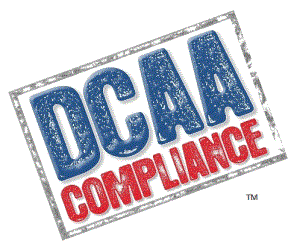The government’s problems with their own bonus plans now extends from the original scandal with the GSA, to the IRS, and now the Veteran’s Administration. The problems also run the gamut from GSA allegedly handing out bonuses to everyone without regards to performance to VA managers allegedly hiding deadly poor performance in order to meet the bonus standards.
Yet, almost every single DCAA audit involves questions and a review of contractor’s own bonus plans. Over the years I came to understand that the creation of bonus polices and procedures plus their implementation proved a significant area of confusion for both auditors and contractors.
It does not help that the guidance in the FAR and even the DCAA Contract Audit Manual focus on one narrow area of incentive compensation that, in my experience, the majority of DCAA auditors attempt to inappropriately apply to all bonuses.
Before we talk about the government side, let’s spend a moment and talk about small contractor business objectives concerning bonuses. As a general rule contractors focus on accomplishing the following:
1) Reward outstanding behavior or performance
2) Provide incentives for outstanding performance
There is a subtle difference that is one of the major obstacles to DCAA and contractor’s coming to an understanding on this subject. The former is often informal while the latter is often formal.
On many occasions in my career I awarded employees at the completion of a difficult project. Sometimes it took the form of a party. Sometimes I rewarded them with one or two paid days off (“Take a four day weekend, guys”) Sometimes it took the form of a little extra in their paycheck, a surprise.
All of this was informal and deliberately so as the informal nature aids in addressing objective one listed above (Reward).
The second objective is a formal plan with measurable goals and defined benefits (money). If the employee or the company meets the goals the benefits are distributed. The majority of bonus plans associated with company stock are of this nature. Many of these might be interpreted as a contract between the company and the employee, something most small contractors wish to avoid. The only formal plan of this nature I ever set up was to reward employees who did not use all of their sick leave.
And therein lies the rub, as the FAR only seems to only address objective two and by inference not allow objective one:
FAR 31-205-6(F)
(f) Bonuses and incentive compensation.
(1) Bonuses and incentive compensation are allowable provided the—
(i) Awards are paid or accrued under an agreement entered into in good faith between the contractor and the employees before the services are rendered or pursuant to an established plan or policy followed by the contractor so consistently as to imply, in effect, an agreement to make such payment; and
(ii) Basis for the award is supported.
(2) When the bonus and incentive compensation payments are deferred, the costs are subject to the requirements of paragraphs (f)(1) and (k) of this subsection.
Some auditors read this regulation to conclude that even Christmas bonuses are unallowable unless they are guaranteed and announced well beforehand.
Of course, the government itself does not follow this strict interpretation as we know in the case of many of the GSA bonuses.
I imagine they get around this by not using the term ‘bonus’ or ‘incentive pay’ in favor of another term as ‘employee reward’. This is what I recommend.
What I did not address are bonus plans intended to distribute profits. These are specifically prohibited by the FAR, although there can be a language problem there also, as the government’s legal name for 401(k) plans are profit sharing plans.
See, one little word can make a huge difference.
